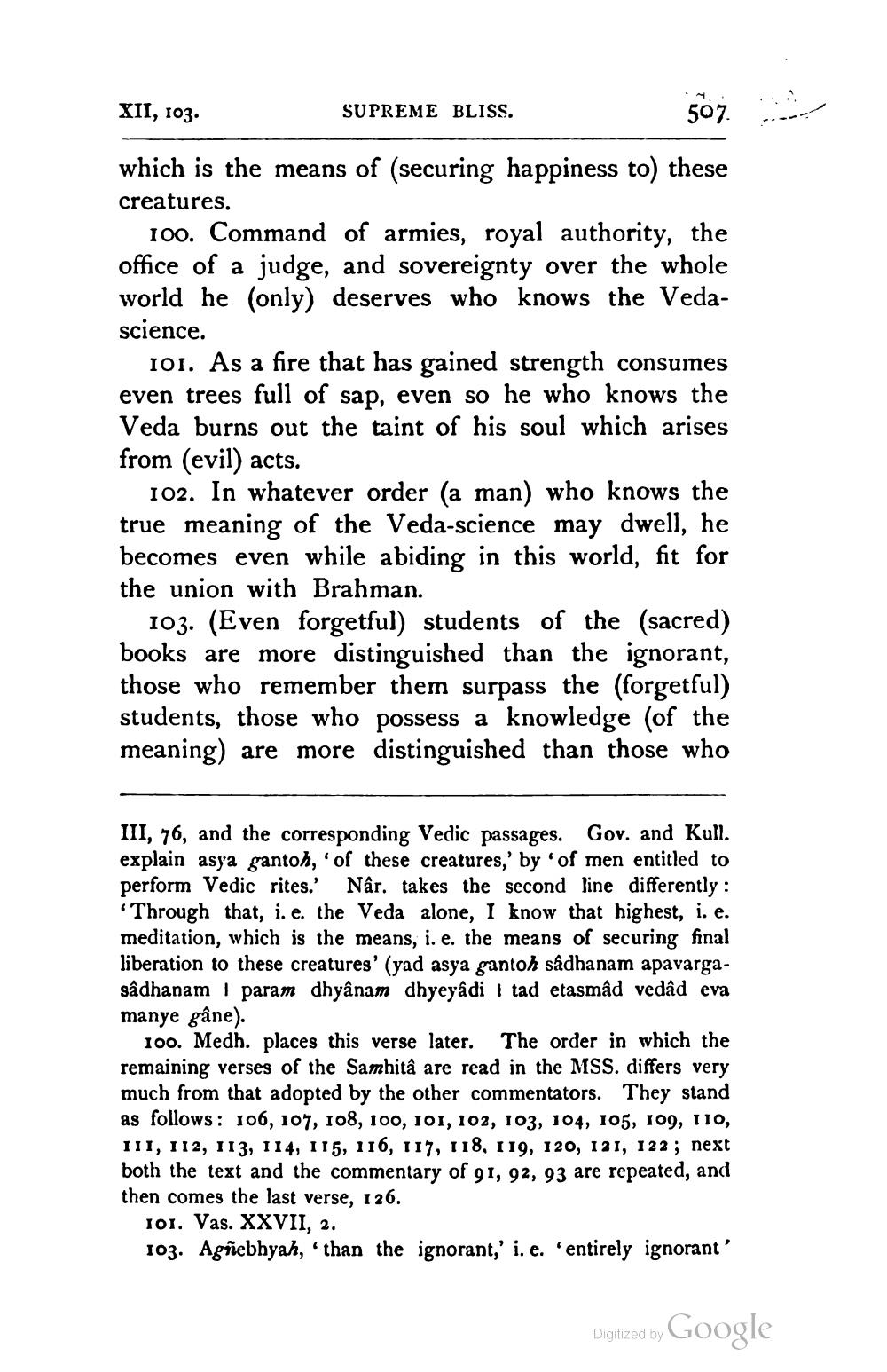________________
XII, 103.
SUPREME BLISS.
507 ...
which is the means of (securing happiness to) these creatures.
100. Command of armies, royal authority, the office of a judge, and sovereignty over the whole world he (only) deserves who knows the Vedascience.
101. As a fire that has gained strength consumes even trees full of sap, even so he who knows the Veda burns out the taint of his soul which arises from (evil) acts.
102. In whatever order (a man) who knows the true meaning of the Veda-science may dwell, he becomes even while abiding in this world, fit for the union with Brahman.
103. (Even forgetful) students of the (sacred) books are more distinguished than the ignorant, those who remember them surpass the (forgetful) students, those who possess a knowledge (of the meaning) are more distinguished than those who
III, 76, and the corresponding Vedic passages. Gov. and Kull. explain asya gantoh, of these creatures,' by 'of men entitled to perform Vedic rites. Når. takes the second line differently :
Through that, i.e. the Veda alone, I know that highest, i. e. meditation, which is the means, i.e. the means of securing final liberation to these creatures' (yad asya gantoh sadhanam apavargasâdhanam 1 param dhyânam dhyeyâdi I tad etasmâd vedâd eva manye gâne).
100. Medh. places this verse later. The order in which the remaining verses of the Samhità are read in the MSS. differs very much from that adopted by the other commentators. They stand as follows: 106, 107, 108, 100, 101, 102, 103, 104, 105, 109, 110, II1, 112, 113, 114, 115, 116, 117, 118, 119, 120, 121, 122 ; next both the text and the commentary of 91, 92, 93 are repeated, and then comes the last verse, 126.
101. Vas. XXVII, 2. 103. Agñebhyah, 'than the ignorant,' i. e. entirely ignorant'
Digitized by Google




